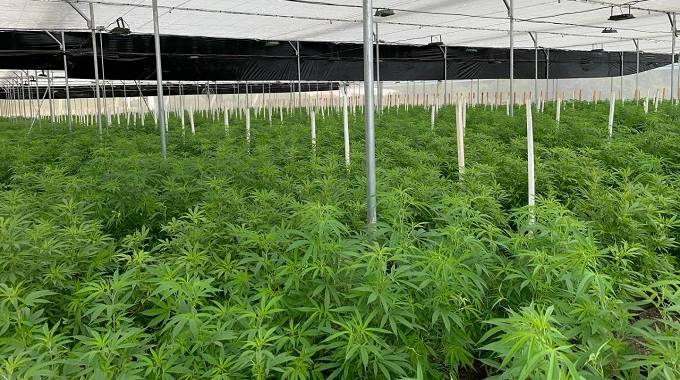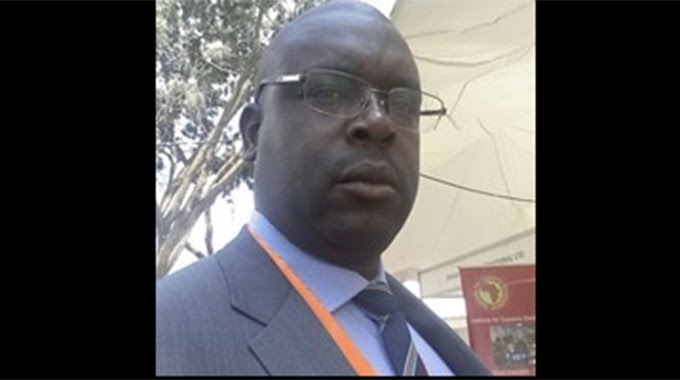Cannabis farming potential cash cow for Zimbabwe

Yoliswa Dube-Moyo, Senior Features Reporter
Cannabis use for recreational purposes remains an offence in Zimbabwe although Government legalised its production for medicinal or scientific purposes in April 2018.
The famous slender canelike stalks, popularly known as weed on the streets is synonymous with Jamaican culture, more specifically the Rastafari movement.
Rastafarians began incorporating cannabis into their religious ceremonies in the late 1800s by indentured East Indians, who were brought to the Island to work after slavery ended.
Rastafarianism, along with some Native American tribes, do not see cannabis as a “fun, party drug”, but as a way to aid in meditation, gain wisdom, and use as a sacrament.
Probably the best-known Rastafarian is reggae musician, Bob Marley who did not see the value of cannabis as a recreational drug but viewed it as a holy rite.
He saw himself as a holy person and believed strongly that cannabis opened up a spiritual door that allowed him to access his creativity.
Cannabis has over the years been packaged in different ways including “space muffins”, mostly to evade its illegality for recreational uses in the country.
It has been sold behind closed doors and tinted windows for years with many recreational weed users being at risk of addiction.
The Government recently gazetted the legal framework for cannabis production through Statutory Instrument 62 of 2018 (Dangerous Drugs — Production of Cannabis for Medicinal and Scientific Use Regulations). According to the SI, producers of cannabis must be licensed by the Minister of Health and Child Care.
“An application for the issue of a license in terms of section 27 of the Act shall be made to the Minister, in duplicate and shall be accompanied by the appropriate fee and three copies of a plan of the site proposed to be licensed which shall comply with the requirement specified in these regulations.
“In case of an individual, proof of citizenship or proof of being ordinarily resident in Zimbabwe or proof of an exemption by the Minister (will be required),” reads the regulations in part.
In February, Zimbabwe began harvesting its first crop of legally cultivated industrial hemp after it decriminalised cannabis’ growing in 2018 to tap into the multi-billion-dollar industry.
Last year, the Zimbabwe Industrial Hemp Trust (ZIHT) planted five varieties of European industrial cannabis on a 10-hectare plot at Harare Central Prison.
Preliminary results showed that of the five varieties planted, only two performed well, with poor rains and high temperatures being blamed. The results also showed that the crops grew and budded quicker than anticipated.
Government has since approved 37 investors who have shown interest in producing cannabis for medicinal or scientific purposes.
Growers of hemp and cannabis get licences valid for up to five years, and have to produce the crop under strict monitoring.
US-based business research company, Grand View Research, expects the global legal cannabis market to reach US$66,3 billion by the end of 2025.
It is believed that increased use of cannabis as a pharmaceutical product for treating conditions such as Parkinson’s disease, cancer and arthritis would spur demand.
However, hemp, which is from the plant species Cannabis sativa, is used for commercial and industrial products such as clothing, shoes, paper and bioplastics.
According to the United Nations, the world’s largest cannabis resin producer continues to be Morocco, which supplies the illicit markets of North Africa and Western Europe. Western Europe is the world’s largest market for cannabis resin, accounting for some 70 percent of global resin seizures in 2005. North Africa accounts for another eight percent.
Cannabis cultivation has the potential to help Africa advance in more ways than one, and with increasing legalisation across the world, the continent may unlock potential income.
Africa is emerging as a player in the medical cannabis sphere at a spectacular rate and for good reason. It has been estimated that the legal cannabis industry could be worth more than US$7,1 billion by 2023 if legislation is implemented across the continent.
Cannabis is by no means a newcomer to African farms, it is estimated that around 38 000 tonnes is already grown despite the fact that it remains illegal in most African countries, with many impoverished citizens turning to cultivating it due to the lack of employment opportunities and the decline in demand for tobacco.
According to a Prohibition Partners’ African Cannabis Report published in March 2019, “Poverty could be the driving force of cannabis legalisation in the region. A decline in demand for key cash crops, such as tobacco, is pushing the region’s governments to look for alternative income streams. Given that cannabis is grown illegally in large quantities across the African continent, full legislation and regulation could unlock the income potential for many African countries, particularly the leading tobacco growers Zimbabwe and Malawi.”
Companies looking to create or expand their cultivation operations in future would do well to consider Africa as a base when it has to offer low cost land ideal for cultivation and a labour force with extensive expertise in agriculture. However, this is not without challenges, as the legal status of medical cannabis varies from country to country and in some areas the legislation is unclear.
In 2018, South Africa’s Constitutional Court — that country’s highest court — unanimously ruled to decriminalise the private possession, consumption and cultivation of cannabis.
The Cannabis for Private Purposes Bill, tabled in the South African parliament on September 1, provides clarity around the growing and private use of cannabis in South Africa.
While the bill can be seen as the first step in a revised, progressive approach to cannabis in the country, the proposed legislation also throws up a number of red flags, says law firm Cliffe Dekker Hofmeyr.
“The focus remains on restricting access to, and the use of, cannabis against the threat of rather severe legal consequences in the form of fines and jail time,” it said.
“What those in the industry were hoping for was a collaborative effort between the various departments such as Health, Agriculture, Finance, and the like.”
Cliffe Dekker Hofmeyr said that the drafters of the bill have seemingly adopted a ‘narrow and traditionalist perspective’, which as currently constructed, does not give an inch more than was mandated by the Constitutional Court.
Zimbabwe seems to be on the same boat. There is need to clear up issues around the commercial aspects about cannabis farming.
One of the glaring omissions is failure to address most commercial aspects and opportunities of cannabis.
By prohibiting the exchange of remuneration for cannabis, cannabis plants, seeds, and seedlings, the South African Bill envisages idealistic altruism while completely ignoring the commercial realities involved in growing, processing, and supplying cannabis for personal consumption.
In practice, this amounts to self-defeating legislation, forcing the average person to obtain cannabis illicitly, reinforcing the existing black market, and depriving the economy of attainable tax income.
Currently, the only commercial opportunities available in the industry relate to farmers who can obtain a licence to either export their yield or supply it to a laboratory that has the necessary licences for the treatment, processing, and manufacturing of cannabis-related products.
In Africa, the United Nations Office on Drugs and Crime estimates that there were about 38,2 million cannabis users in 2005, equivalent to 7,7 percent of the African population aged 15 to 64. The highest rates within Africa are found in West and Central Africa (13 percent) and in Southern Africa (8,5 percent).
According to the Medical Cannabis Network, cannabis contains cannabidiol (CBD) which is a chemical that impacts the brain, making it function better without giving it a high along with tetrahydrocannabinol (THC) which has pain relieving properties.
Both substances can be extracted and enhanced for use through short path distillation. It is believed that cannabis is useful in the relief of chronic pain, it improves lung capacity, helps in weight loss, regulates and prevents diabetes, helps treat depression and provides relief to individuals with multiple sclerosis among many other medicinal uses. – @Yolisswa











Comments